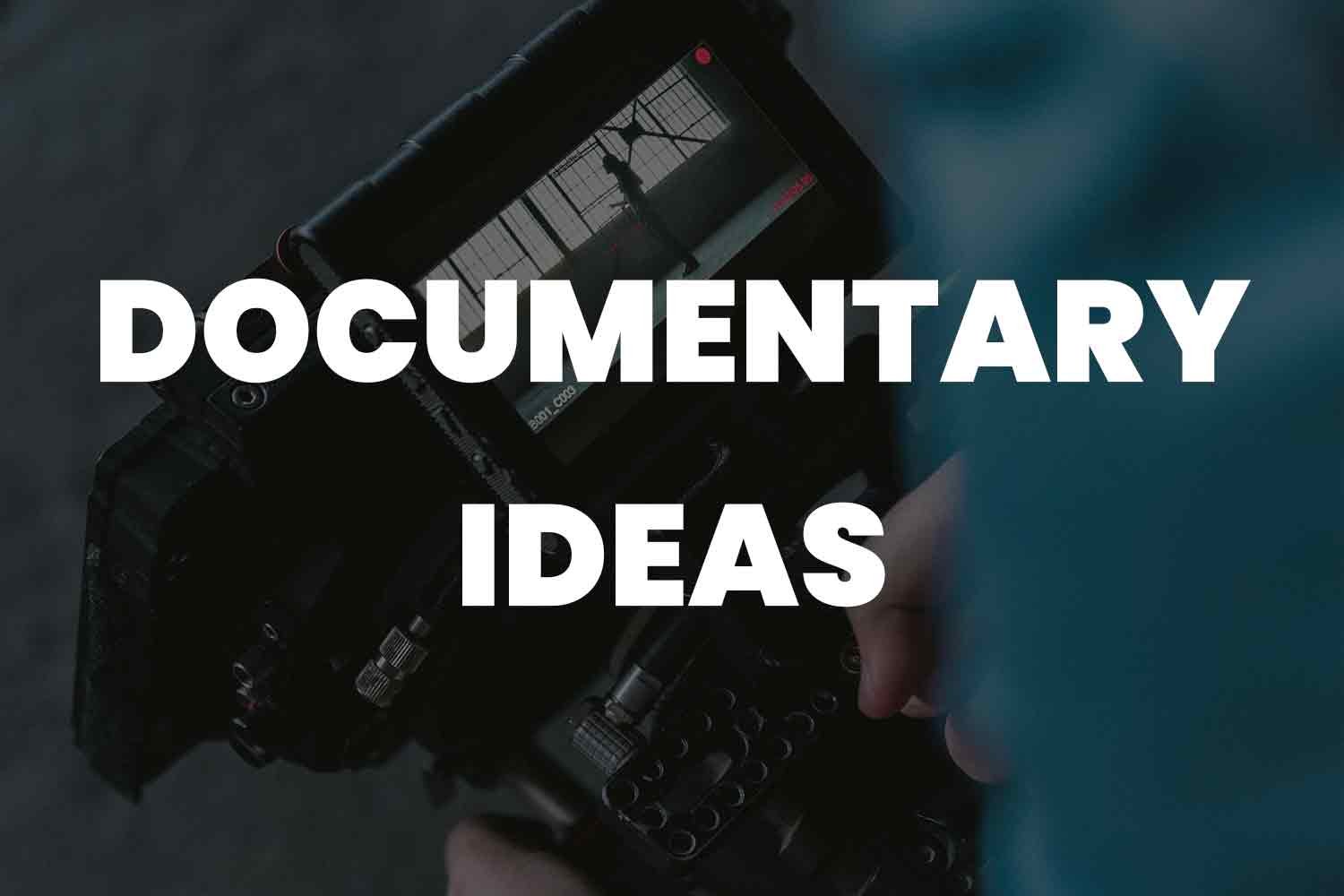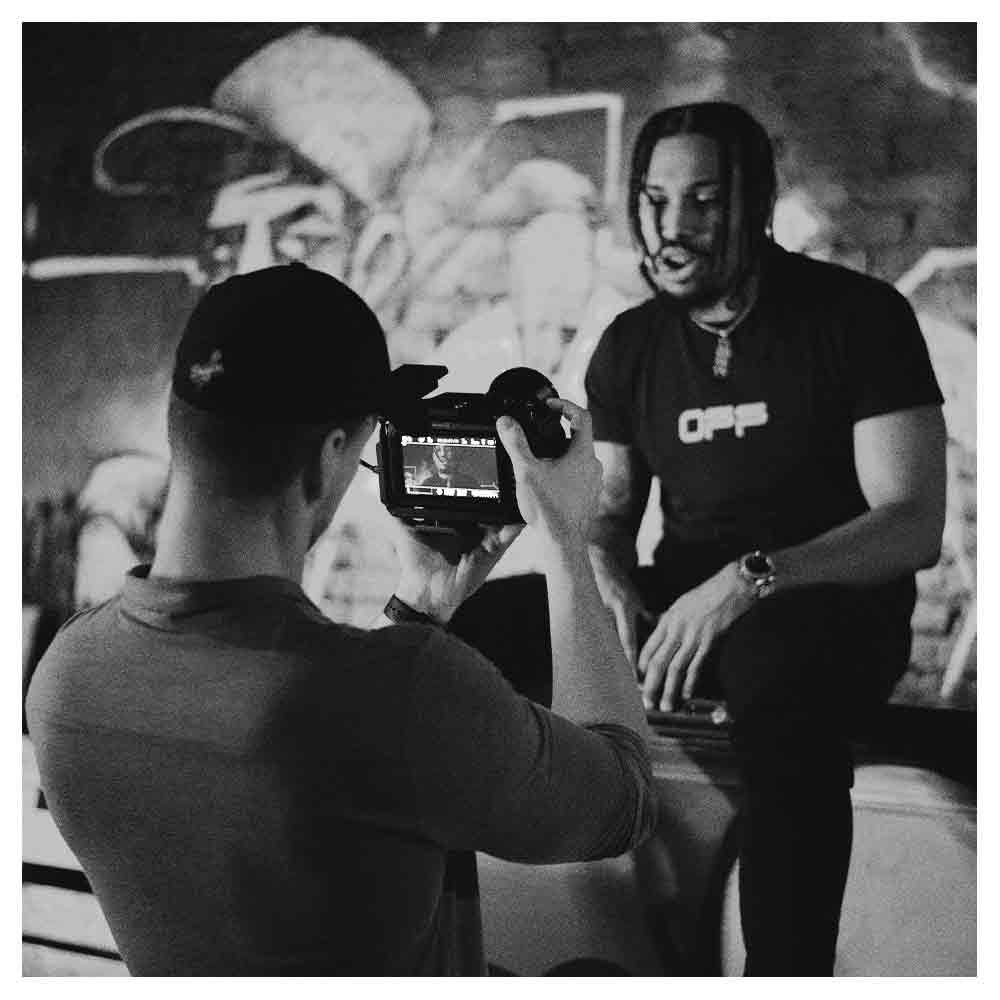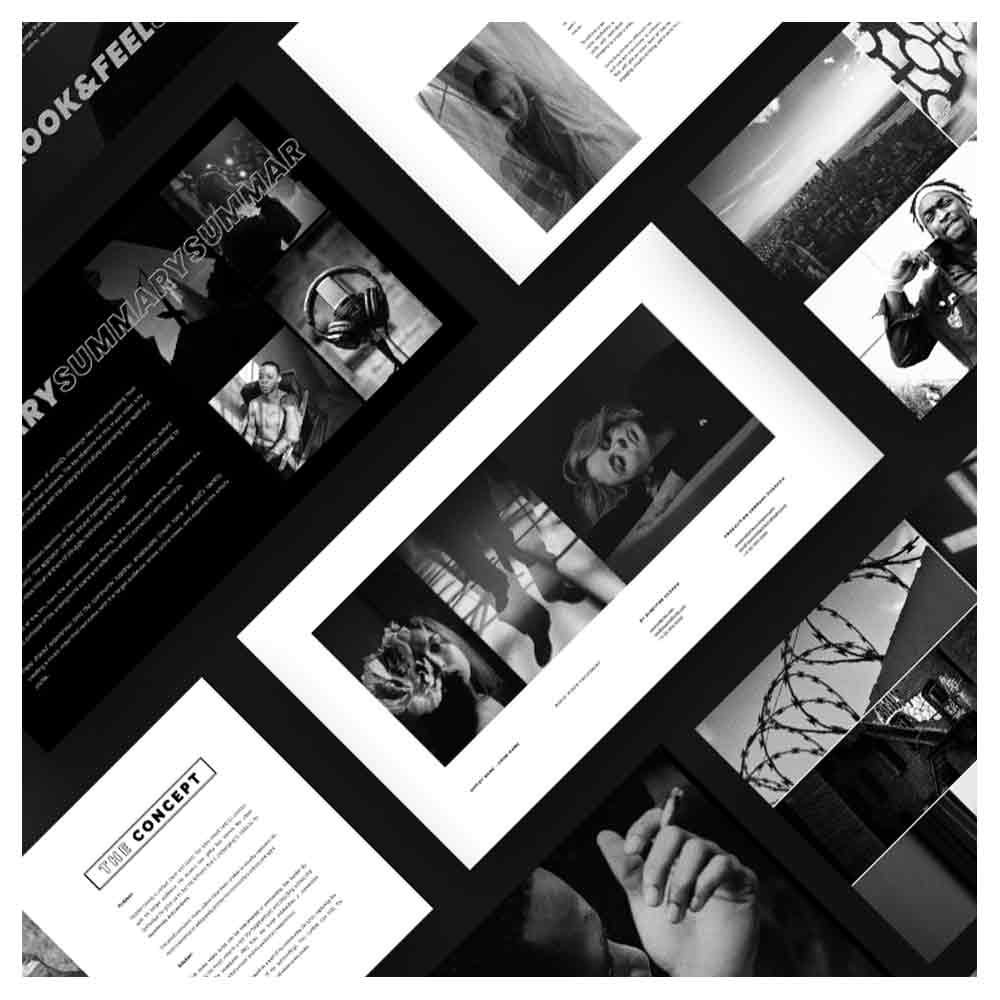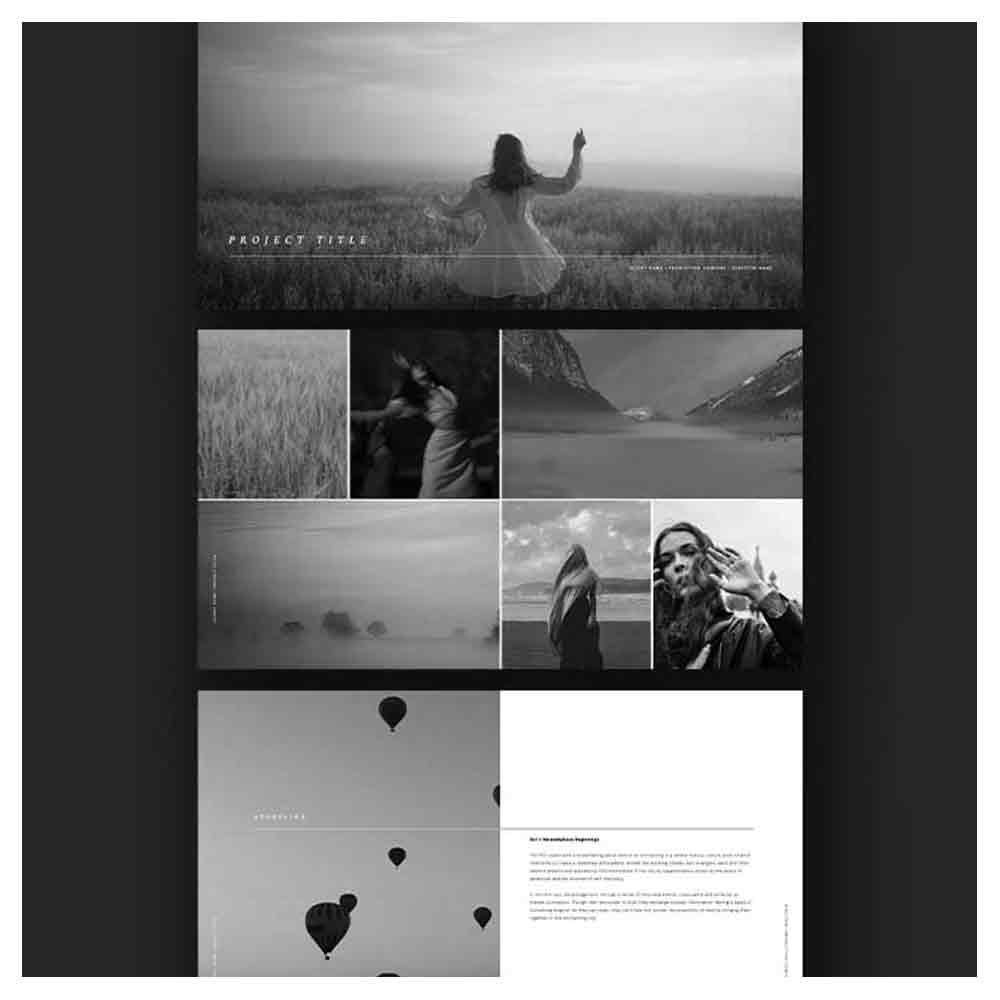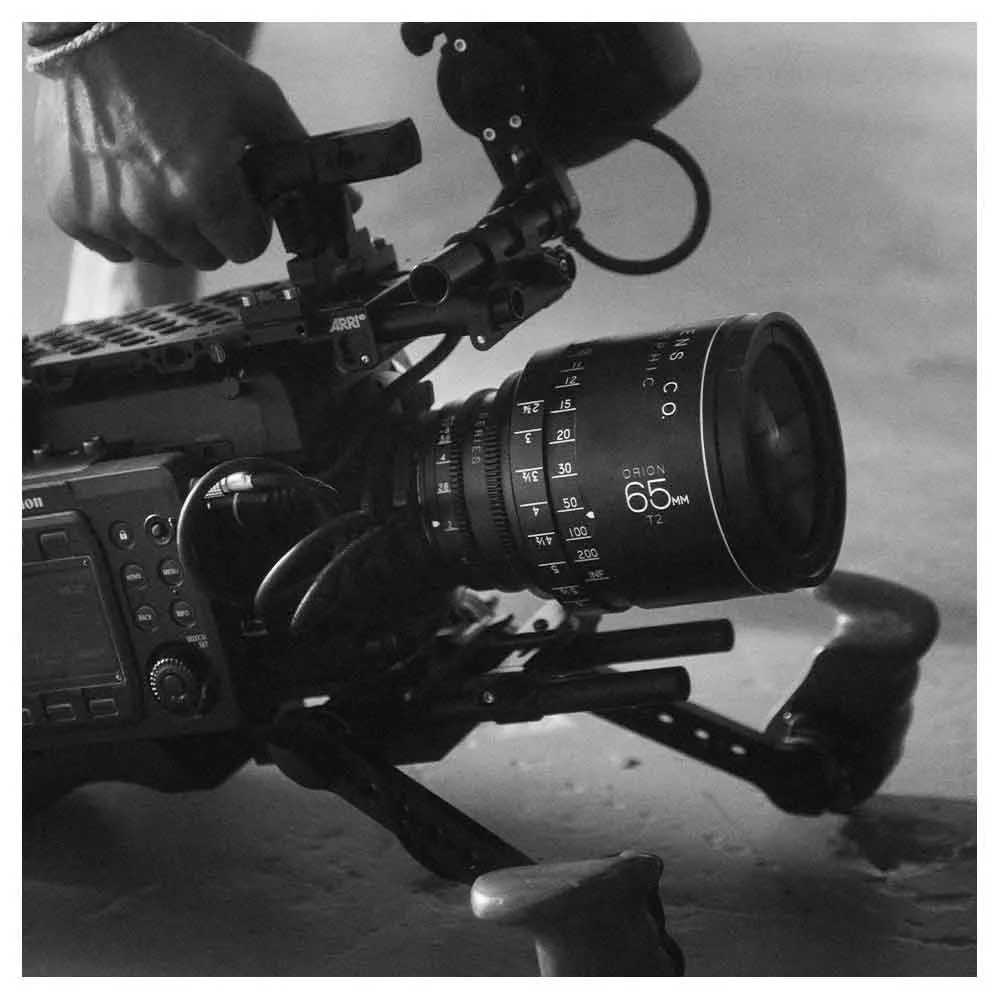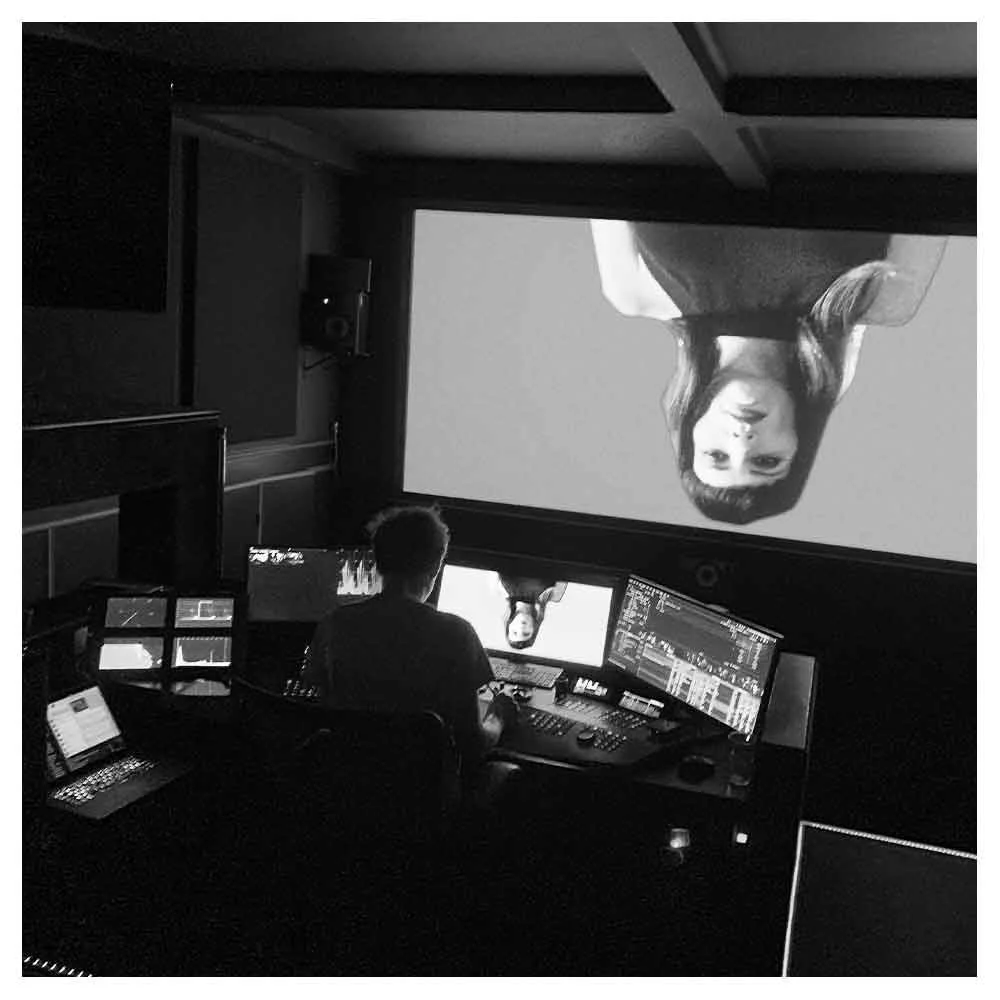121 Documentary Ideas To Inspire Your Next Documentary Film Project
Making a documentary can be a wonderful way to inform, educate, and inspire audiences in ways other forms of storytelling can't. But whether you're a seasoned documentary filmmaker or just getting started, coming up with a good documentary idea can be daunting.
To help you speed up the process of finding a documentary subject, tell a story via a unique angle or perspective, and spark creativity inside of you, I wanted to share 121 documentary ideas in this blog.
From exploring the intricacies of human behavior to delving into the inner workings of global industries, from short film formats to feature-length style projects, these documentary ideas will hopefully provide you with a wealth of material to work with.
A long list of documentary ideas
1. The Sociology of FOMO: Fear of missing out in the age of social media.
2. The hidden world of professional dog grooming competitions.
3. An investigation into the use of forced labor and human trafficking in the global supply chain of major corporations.
4. An in-depth examination of the psychological and sociological factors that drive individuals to become conspiracy theorists.
5. The effects of social media on body image and self-esteem.
6. The science of decision-making and how it influences our choices.
7. The Art of Small Talk: How to make conversation with strangers.
8. The rise of "cancel culture" and its effects on free speech and expression.
9. The History of Selfie Culture: A look at the evolution of self-expression.
10. The role of culture in shaping gender identity and expression.
11. The impact of stress on the mind and body and how it can be managed.
12. The neural mechanisms behind addiction and recovery.
13. The underground world of extreme birdwatching.
14. The Neuroscience of Emoji: How we use digital icons to express emotions.
15. The concept of identity: how our experiences, culture, and society shape who we are.
16. The world of competitive video gaming and its effects on mental health.
17. The history and impact of street art in urban areas.
18. The complexity of emotions: how they are processed in the brain and how they impact our behavior.
19. The impact of fear and anxiety on individuals and society.
20. The role of creativity in problem-solving and innovation.
21. The psychology of addiction: the neurobiological and environmental factors that contribute to addiction.
22. The development of online education in traditional universities.
23. The impact of drones on the future of delivery and transportation.
24. The Psychology of Procrastination: Why we put things off.
25. The world of competitive Rubik's cube solving and its effects on the players.
26. The impact of the surveillance economy on privacy and civil liberties.
27. The effect of social media influencers on consumer behavior.
28. The nature of human connection: how we form relationships and the impact they have on our lives.
29. The world of competitive arm wrestling.
30. How artificial intelligence will impact the future of jobs.
31. The science behind why people lie and how it affects relationships.
32. The effect of the on-demand economy on consumer expectations.
33. A deep dive into the world of competitive eating.
34. The future and impact of blockchain technology on the world of finance.
35. The power of memory: how it shapes our past, present, and future.
36. The effect of autonomous vehicles on the future of transportation.
37. How the digital nomad lifestyle will change the future of work and travel.
38. The effect of social media on society.
39. Examining the connection between mindfulness and emotional well-being.
40. The war on drugs and its consequences.
41. The psychology of conformity and nonconformity in group dynamics.
42. The economics of income inequality.
43. The psychology of decision-making: exploring the factors that influence our choices.
44. The impact of space tourism on the future of space exploration.
45. The result of 3D printing on the future of manufacturing.
46. The evolution of the food industry and its effects on health and the environment.
47. The history of the LGBTQ rights movement.
48. The impact of childhood trauma on adult mental health.
49. The future of artificial intelligence and its implications.
50. The decline of traditional news media and the rise of fake news.
51. The concept of morality: its evolution and its impact on human behavior.
52. The history and cultural significance of street food vendors.
53. The psychological effects of combat on soldiers.
54. Exploring the intricate social structures and behaviors of honeybees in the wild.
55. The evolution of language: how it shapes our thinking and understanding of the world.
56. The history of the American Dream and whether it's still attainable.
57. The relationship between dreams and the unconscious mind.
58. The psychology of mass shootings and gun violence in America.
59. Homelessness: A look at the root causes and impact of homelessness on individuals and society.
60. The impact of food industry marketing on eating habits and obesity.
61. The effects of the fashion industry on the environment.
62. The concept of time: how we perceive and experience it and how it shapes our lives.
63. The history of the rise of China as an economic superpower.
64. The Art of Loneliness: Understanding the impact of social isolation on mental and physical health.
65. The history and future of genetic engineering and its implications.
66. The Philosophy of Death: Examining our understanding and acceptance of death and dying.
67. The impact of social media on political campaigning and elections.
68. The effects of government surveillance on civil liberties.
69. The consequences of plastic pollution on the oceans and marine life.
70. The future of housing and metropolitan development.
71. The impact of the entertainment industry on society.
72. The future of energy storage and its implications for renewable energy.
73. The effect of e-commerce on brick-and-mortar businesses.
74. The Science of Rivalry: Understanding the psychology and biology of competition.
75. The role of humans in the extinction of species and loss of biodiversity.
76. The concept of free will and determinism: how they shape our understanding of human behavior.
77. The end of privacy in the new digital age.
78. The role of media in shaping public opinion during war.
79. The Neuroscience of Creativity: Understanding how the brain generates new ideas.
80. The history and future of agriculture and food production.
81. The history of the rise of the sharing economy and its effects on the economy and society.
82. The impact of overfishing on the ocean ecosystem.
83. The result of the internet on personal relationships and communication.
84. A mockumentary about a group of friends who become convinced that a secret society controls their local convenience store.
85. The rise of plant-based diets and their effect on the environment.
86. The history of the rise of alternative currencies and their implications.
87. A mockumentary about a group of people who believes the world is flat and their efforts to prove it to the public.
88. The history and future of the alternative energy industry and its impact on the economy.
89. The effect of the internet on the publishing industry and the end of books.
90. The history and future of the food delivery industry and its impact on local restaurants and food systems.
91. An exploration of the impact of conspiracy theories on public trust and democracy.
92. The history and future of the legal marijuana industry.
93. The effects of climate change on coastal communities.
94. The globalization of cuisine and its effects on local food traditions.
95. The role of imagination in shaping our reality and understanding of the world.
96. A mockumentary about a group of people who believes the world is flat and their efforts to prove it to the public.
97. The nature of happiness and how it is influenced by genetics, environment, and lifestyle.
98. The rise of minimalism and its impact on consumerism.
99. The lives of immigrants in a specific city or region.
100. The Psychology of Nostalgia: Understanding the role of memories in shaping our emotions.
101. The economic costs and benefits of war.
102. The Anthropology of Food Choices: Understanding the cultural and social factors influencing our diets.
103. The complexity of human motivation: the various factors that drive our actions.
104. The impact of poverty on a child's development.
105. An examination of the psychological and physical effects of long-term solitary confinement in prisons.
106. The daily life of a group of conspiracy theorists who believe the government is hiding the existence of extraterrestrial life.
107. The pharmaceutical industry's cover-up of harmful side effects from prescription drugs.
108. The current state of human rights in a specific region or country.
109. The history and future of biotechnology.
110. The Economics of Leisure: Understanding how we value our free time.
111. The effects of the internet on personal identity.
112. The psychological effects of prolonged isolation and quarantine during the COVID-19 pandemic.
113. The ethics and social implications of using performance-enhancing drugs in sports.
114. The impact of deforestation on indigenous communities and the environment.
115. The long-term effects of nuclear disasters on the environment and human health.
116. The psychology of persuasion: how advertising and media shape our perceptions and decision-making.
117. The role of spirituality and religion in shaping human behavior and worldviews.
118. The ethics and effectiveness of using genetic engineering to improve human physical and mental abilities.
119. The role of nutrition and lifestyle in disease prevention and management.
120. The untold stories of women in war.
121. An examination of the role of government and the media in fueling or dispelling conspiracy theories.
Conclusion
I hope these documentary ideas can help you fast-track the process of documentary filmmaking a bit instead of coming up with new ideas for your next film project.
Pick a few documentary ideas from the list above that draw your attention and research them by reading books and articles and watching other documentaries and YouTube videos on the same or similar topic.
This will give you a sense of what has been covered and what hasn't. It will also help you identify gaps in the existingliterature that you could fill with your documentary film.
Once you have a solid idea for your documentary, it's crucial to think about the documentary's form, format, and structure and how you will tell the story. Who is your target audience? Is your documentary subject great for a traditional talking-heads-style documentary, or will you incorporate animation, stock footage, archival footage, or other visual elements?
Will it have a linear structure, or will it be more experimental? Will it have a feature film length, or will it be a short documentary? These are all critical questions to consider as you develop your idea further.
Finally, it's important to remember that the process of coming up with great documentary ideas is an iterative one. You may come up with an interesting documentary idea that you initially think is great, only to find that it doesn't quite work once you start filming.
This is okay, and it's essential to be flexible and open to change as you move through the documentary filmmaking process. With creativity, research, and perseverance, you can create an excellent documentary that captivates audiences and leaves a lasting impact.
Frequently Asked Questions About Making Documentaries (FAQs)
What is a documentary?
A documentary is a non-fiction film or video that presents a real-world subject or event and can be informative, educational, or persuasive.
What are the different types of documentaries?
There are many different types of documentaries, including:
Observational
Participatory
Expository
Poetic
Reflexive
Some documentaries focus on a specific topic or subject, while others take a more general approach.
What are some good ideas for a documentary?
Some popular subjects for documentary filmmaking include current events, social issues, historical events, biographies, science and technology, and the environment.
You could also consider exploring a subculture or community you're interested in or telling the story of an individual who has achieved something remarkable. You can flip open the newspaper to discover a relevant topic or search news sites for stories.
Other documentary ideas include:
Investigating a conspiracy theory.
Drug abuse of young people.
Air pollution around the world.
Famous people.
Environmental pollution.
Climate change.
Covering a disaster festival or event.
Exploring a controversial profession or industry.
Showcasing what's happening behind the scenes at a famous travel destination.
The truth about war and the role of world leaders.
Telling the story of ordinary people in extraordinary circumstances.
How do I choose a subject for my documentary?
The best subject for a documentary is one you are passionate about and can provide a unique perspective. It's also essential to choose a topic with a built-in audience that can generate interest from potential viewers.
How do I come up with a unique angle for my documentary project?
One way to create a unique angle for your documentary film is to focus on an underrepresented perspective or aspect of the subject that has yet to be explored in-depth.
How do I find funding for my documentary?
Several ways to find funding for your documentary production include grants from foundations, government arts councils, or non-profit organizations.
You can also seek funding from broadcasters, streaming platforms, private individuals, or investors. You can also crowdfund your project or look for sponsorships from businesses.
Also, you can look for co-production funding and partnership opportunities.
How can I make sure my documentary is balanced and objective?
To ensure that your documentary tells a balanced and objective story, you should interview multiple experts or sources on the subject and include their different perspectives in the film.
You should also fact-check all information in your film and have a disclaimer if any information is uncertain.
Also, consider using a narrator or on-screen text to provide context and background information.
What are the steps in making a documentary?
The process of making a documentary can vary depending on the type of film, the subject matter, and the budget. However, some general steps may include:
Developing a concept and director’s treatment.
Conducting research and pre-production planning.
Filming and collecting footage.
Editing and post-production.
Marketing and distribution.
How do I edit and distribute my documentary?
After filming your documentary, you must begin the post-production process by editing your footage. This typically involves reviewing the footage, selecting the best takes, and assembling them into a rough film cut.
You may also need an editor, sound designer, and colorist to help you.
After you have a final cut of the film, you will need to consider distribution options, such as submitting to film festivals, self-distributing on streaming platforms, or trying to secure distribution through a distribution company or a broadcaster.
It would help if you also considered creating a digital press kit and promoting your film through social media and other online platforms to reach your target audience.
What role can documentaries play in highlighting social issues like gender identity and gun violence?
Documentaries have the power to raise awareness and spark public conversation about critical social issues.
By focusing on topics such as gender identity and gun violence, filmmakers can present facts, share personal stories, and offer a platform for underrepresented voices, ultimately influencing public opinion and encouraging societal progress.
How can filmmakers use documentaries to explore and explain complex topics like climate change and artificial intelligence?
Documentaries are excellent tools for delving into complex issues such as climate change and artificial intelligence.
By breaking down intricate concepts into digestible segments and using compelling visual aids, filmmakers can educate their audience while keeping them engaged.
Archival footage, expert interviews, and dynamic graphics can help demystify these topics and make them accessible to a broader audience.
What are some effective strategies for documenting the impact of urbanization on communities around the world?
To document the effects of urbanization, filmmakers might focus on a few examples of cities like Cape Town, exploring both the positive advancements and the challenges urban areas face, such as environmental pollution and housing crises.
Using a mix of observational footage, personal interviews, and expert analyses can provide a well-rounded perspective on the urban experience.
Can you give examples of how to kickstart a documentary project about hidden communities?
Kickstarting a documentary about hidden communities involves several key steps: selecting a specific topic that is seldom explored, like the underground world of major corporations or the day-to-day operations at a local convenience store.
Next, gather a blend of interviews and on-site footage to share these untold stories, ensuring to present a respectful and informed viewpoint that can enlighten mainstream society.
How can short documentaries effectively contribute to environmental conservation efforts?
Short documentaries are powerful tools for environmental conservation. They can quickly inform viewers about urgent issues like deforestation or wildlife smuggling.
By concentrating on a single aspect and using poignant, visual storytelling, short films can compel viewers to take action, whether it’s through advocacy or personal lifestyle changes.
What steps are involved in making a travel documentary that sheds light on the environmental and cultural impacts of tourism?
Creating a travel documentary that highlights the impacts of tourism involves researching destinations where the tension between tourism and local life is palpable.
Filming should focus on both the beauty and the burdens tourism brings to areas, incorporating perspectives from locals, experts, and tourists.
The editing process should weave these viewpoints together to present a narrative that encourages responsible travel practices.
How do you ensure a documentary about human trafficking is handled with sensitivity and makes a lasting impact?
To handle a topic as sensitive as human trafficking, it’s crucial to approach the subject with empathy and respect for the individuals involved.
This means careful selection of interviewees, thoughtful framing of their stories, and a focus on the solutions rather than just the problems.
The goal should be to enlighten and motivate the audience to support efforts against trafficking while respecting the dignity of those affected.
In exploring themes like the American Dream or conspiracy theories, how can documentaries influence viewer perception and understanding?
Documentaries about the American Dream or conspiracy theories can reshape viewer perceptions by presenting a range of experiences and evidences.
For the American Dream, this might involve stories of both success and struggle, challenging the traditional narrative.
For conspiracy theories, a fact-based approach that also explores the psychological allure of such theories can provide a balanced view, influencing how audiences discern truth from fiction.
